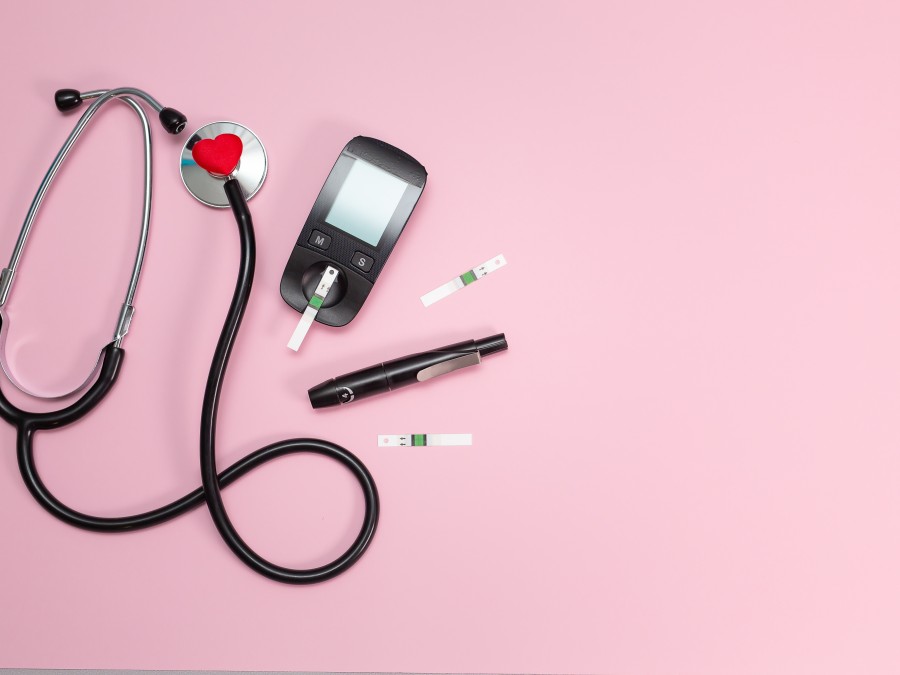Type 1 diabetes day-to-day: blood glucose management during daily life

Type 1 diabetes day-to-day: blood glucose management during daily life
Type 1 diabetes is a complex condition, and ongoing self-management is essential to managing your blood glucose.
Lifestyle choices play an important part in helping you to manage your diabetes. They also help to prevent some of the complications of diabetes, negative impacts on your physical and mental health, and can improve your quality of life.
In this article, we will look at ways to manage your diabetes on a daily basis that will hopefully help to make day-to-day life a bit easier. While there are numerous different aspects to diabetes management, we have chosen a few activities and events that might occur every day to show how these can be used to help improve blood glucose management.
Your morning routine
Getting enough sleep — and good quality sleep — is important for everyone, but there are some additional things to be aware of if you have type 1 diabetes.
An irregular sleeping pattern and an insufficient amount of sleep can lead to challenging blood glucose management. For example, getting up early for work during the week and oversleeping on weekends — referred to as ‘social jetlag’ — and the variation in sleep that this causes can make managing blood glucose levels a little more difficult and harder to plan for.
Maintaining a stable sleep schedule by setting a regular time to wake up and go to bed could help promote better glycaemic management and potentially improve diabetes management.
It’s also a good idea to have an everyday morning routine that includes checking your blood glucose. Some people can have high blood glucose readings in the morning — known as ‘morning highs’.
If you experience morning highs, you may need to account for this in your insulin dosing or the diabetes technology you use. Your healthcare team will be able to help you find the best strategy for you.
Eating

Eating
When living with diabetes, it’s helpful to learn more about food, the nutritional information and how it will affect your blood glucose levels.
Some people find it easier to stick to a meal schedule, while others find eating as and when they want to works for them too. Regardless of when you eat, it’s really helpful to understand the nutritional content of your food and recognise how they affect your blood glucose levels so that you can administer insulin accordingly. Try to eat a variety of food, including fruit, vegetables, fibre, protein and dairy; maintaining a balanced diet is important.
It is also recommended that you check your blood glucose levels before meals. Information such as your current blood glucose level, the carb count of the meal, remaining active insulin in your body and physical activity can be used to calculate your mealtime insulin dose.
If you are struggling to maintain a balanced diet or are finding it hard to manage food and your diabetes, you can ask for help from your healthcare team who can help you put together a plan.
What to do when you are ill
Illnesses — things like colds or the flu — increase stress hormones in your body. This can make it difficult to manage your blood glucose and keep it within your target range, as well as all the other effects of fighting illness and feeling unwell.
Preparing for days when you might be unwell can help to manage your diabetes as well as prevent additional complications such as diabetic ketoacidosis (DKA).
Some good tips for a sick day could include:
-
Trying to check your blood glucose every 2–3 hours
-
Continue taking your basal and mealtime insulin
-
If you have lost your appetite, try to drink plenty of fluids and try easy nutritious foods such as soup. It’s a good idea to stock up your cupboards with some easy staples just in case.
-
Check your blood and urine ketones frequently
-
Stay as hydrated as you can
- If you feel able, try moving your body by going for a small walk or even by just moving around your home.
You can talk to your GP or diabetes healthcare team if you need further advice when you feel unwell from non-diabetes based illness or how to manage any other conditions you might have alongside diabetes.
Managing stress
Unfortunately, it’s pretty difficult to lead a stress-free life, but there are ways and tips to avoid unnecessary stress or to help get you through a stressful time.
Stress stimulates the release of various hormones, which can result in elevated blood glucose levels. This can cause problems managing your diabetes and stressful periods of time might also make it harder to remember medication or keep on top of daily life such as eating well and looking after yourself.
Although you can't completely remove all stress from your life, there are several ways you can reduce it.
A few methods to try to reduce stress can include:
-
Making a self-care plan for a day when you need to look after yourself; include your favorite activities, food, drinks and skin or body care.
-
Exercise; This could be anything from a small walk, light stretches or a class at your local fitness centre.
-
Relaxation techniques such as meditation, yoga or breathing exercises.
-
Talking — either to friends, family or a professional.
If you find that you need some extra support, either with your diabetes or with other things in your life, you can chat to your healthcare team or GP who will be able to advise you on what to do next.
Drinking alcohol
Alcohol — especially in excess — is known to impact diabetes management and can lead to low blood glucose levels (hypoglycaemia).
If you are going to drink alcohol, then having a plan for managing your diabetes before, after and during can be helpful.
You may want to consider checking your blood glucose levels regularly on a night out if you are able to. You might also want to consider eating some carbs when drinking alcohol to prevent your blood glucose from dropping too low.
There are also so many options for alcohol, including some that have a lower glycaemic index and might be an option for you. Check out our article here all about drinking alcohol.
Exercise
Exercise is an important part of blood glucose management and staying healthy.
There are many benefits to exercise if you have type 1 diabetes, including:
-
Lowering your blood glucose
-
Lowering your blood pressure
-
Improving your blood flow
-
Weight management
-
Improving mental and physical health
-
Helping you get better sleep
Exercise doesn’t just have to involve going to the gym. It could also come from walking or cycling instead of driving, doing housework, taking the stairs, and active outings with family or friends.
It’s worth bearing in mind that physical activity can lead to low blood glucose, both in the short and longer-term. It is important to have a plan in place for exercise or sports which includes the timing of the activity and balancing carb intake against insulin doses.
Night Time
It’s a good idea to check your blood glucose levels before bed. This can help you to see if they are within your target range or give you an idea of where you might be heading overnight.
A large dinner or a snack at bedtime can cause elevated blood glucose levels that may last all night, as can a too-low dose of insulin with your evening meal.
Sometimes, low blood glucose levels during the night can lead to morning highs — known as the Somogyi effect. This is when the body makes more glucose in order to compensate for low glucose levels, and you wake up with high blood glucose. This can occur if you miss dinner or administer too much insulin afterwards.
If you notice a pattern of highs or lows when you wake up, checking your blood glucose levels at bedtime, in the middle of the night, and when you first wake up can help you to understand this pattern more. Using a continuous glucose monitor (CGM) can also help to gather the data you need while you sleep through the night — if you don’t have one, speak to your diabetes care team about your options.
There are a number of ways you can adjust your daily routine that could help make managing your diabetes easier. If you have any doubts or need any support, talk to your healthcare team to find out more ways to help with blood glucose management during daily life.
Sources
- Karway G., Grando M.A., Grimm K., Groat D., Cook C., Thompson B. Self-Management Behaviors of Patients with Type 1 Diabetes: Comparing Two Sources of Patient-Generated Data. Appl Clin Inform. 2020;11(1): 70-78
- Perez K.M., Hamburger E.R., Lyttle M., et al. Sleep in Type 1 Diabetes: Implications for Glycemic Control and Diabetes Management. Curr Diab Rep. 2018; 18(2): 5
- American Diabetes Association. High Morning Blood Sugars. Accessed April 2022. Available at: https://www.diabetes.org/diabetes/treatment-care/high-morning-blood-glucose
- Wood, J. The type 1 diabetes self-care manual: a complete guide to type 1 diabetes across the lifespan for people with diabetes, parents, and caregivers, 2018, American Diabetes Association. DOI: 10.2337/9781580406208
- National Institute of Diabetes and Digestive and Kidney Diseases. Diabetes diet, eating, and physical activity. Accessed April 2022. Available at: https://www.niddk.nih.gov/health-information/diabetes/overview/diet-eating-physical-activity
- American Diabetes Association. Planning for Sick Days. Accessed April 2022. Available at: https://www.diabetes.org/diabetes/treatment-care/planning-sick-days
- Surwit R.S., Schneider M.S., Feinglos M.N. Stress and diabetes mellitus. Diabetes Care.1992;15 (10): 1413-22
- WebMD. Managing stress when you have diabetes. Accessed April 2022. Available at: https://www.webmd.com/diabetes/managing-stress




